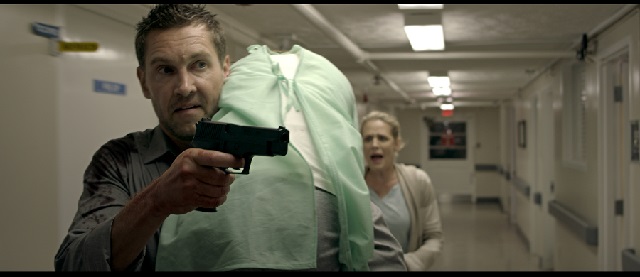Interview by Tiziano Thomas Dossena
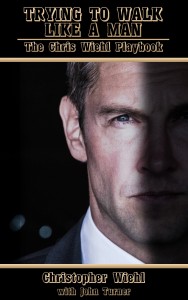
Christopher Wiehl is an American-born actor and filmmaker. A native of Yakima, Washington, Chris graduated from the University of Washington in 1993 with a major in Dramatic Arts; he migrated to Los Angeles in the summer of ’94, and quickly booked several major ad campaigns, for Old Spice, Coors, Ford, and Coca-Cola, among others. He soon appeared as a Guest Star on numerous popular television series, and by 1997 he became a series regular on shows like Bull, First Monday, Playmakers, and CSI: Las Vegas.
In 1998, Chris added writer, producer, director to his bio when he formed Yakima Productions. The company has released three films and currently houses over a dozen scripts.
In 2009, Chris’ life took a real turn when he received a brain tumor diagnosis. With his baby boy only a month old and a marriage already on the rocks, Christopher’s life was in peril. He had a successful surgery to remove the tumor, but had major complications during recovery. It’s been a long climb back to relevance in the entertainment world and redemption in his personal world.
Today Chris is healthy and happy again, working in Hollywood and living at the beach, and living a life he thought was out of reach just a few years before.
Trying To Walk Like A Man, The Chris Wiehl Playbook is a wonderful autobiography by the actor/ filmmaker Chris Wiehl, written with ex-actor/writer John Turner; it has sensitivity, honesty and a true account of overcoming apparently insurmountable difficulties that will grab the heart of the reader and will keep it prisoner until the end. In it, the author gets a brain tumor removed, leaving him partially deaf. It’s not only a story of a man prevailing over the aftereffects of a brain tumor, though, but it’s in reality two stories, one of them unwritten in this book: John Turner was also an actor when he was brutally assaulted and left with traumatic brain injury. After that incident, John no longer had the capabilities to perform, so he established a career as a writer.
Their book is therefore more meaningful because of the experience that Mr. Turner had, which allows him to capture Christopher Wiehl’s true feelings and passed them to the reader fully unaltered.
INTERVIEW WITH CHRIS WIEHL
L’IDEA Magazine: Do you feel you are a better person because of this unfortunate event of your life? That is, in what ways has ‘being a survivor’ changed you psychologically?
CHRIS WIEHL: I definitely have more empathy. Physically, I’m really not “better”—I’m deaf in my right ear, I have balance issues—but psychologically, you bet. I think I’m more patient, more empathetic, and being near death can really change your perspective. I definitely value the little things more. I don’t take nearly as much for granted as I used to. Being able to stay healthy and fit—a lot of those “little things” are more important to me now.
L’IDEA Magazine: From every page of your book transpires your view that nothing really positive can be achieved without hard work and perseverance. Do you feel mental stamina is hereditary? Is it part of one’s personality? Can it be built upon?
CHRIS WIEHL: I don’t know if that kind of stamina is hereditary, as much as it’s passed down through generations. You kind of learn it by example. I was really fortunate to have parents that worked very hard, and they showed me the benefits of long-term perseverance. Unfortunately, in the acting business nobody showed me how to keep going when times got tough—not directly, anyway. I did have lots of support from my friends and family, but I kind of had to rely on myself. One thing that I’m glad I did early on—and still do, to an extent—is to make sure and do something positive every single day. So when I’d put my head on my pillow each night, I could say I did something to help myself. And when my breaks finally came, I had a positive attitude about things, and that helped me keep moving forward. So perseverance is a learned skill. It’s like a muscle—the more you exercise it, the stronger it gets.
L’IDEA Magazine: Your book tells about your having to survive an unexpected ailment and its consequences and how you came out of it, but if you had only a paragraph to express your feelings, what would you tell someone who has to confront a similar situation as the one you lived through?
CHRIS WIEHL: Several things: first, that it’s okay to be sad. There’s a great line in Hamlet where his mother says that they need to get up and get going, and Hamlet says, “First, I must bleed.” In other words, take the time you need to work through it, and you’ll be better off in the long run. And depending on the problem you’re facing, try to live day by day—or even minute by minute. Don’t concern yourself with tomorrow, or next week, or even next month. Try to live in the moment. Before you know it, those moments add up to days, weeks, and months. And finally: don’t be ashamed to ask for help! Having your loved ones on your side will go a long way.
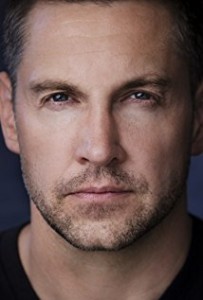
L’IDEA Magazine: When you returned to your acting occupation, after the operation, was deafness or lack of equilibrium the hardest to deal with, in that context?
CHRIS WIEHL: I think the toughest thing was that I suddenly had to strain to listen a lot more. Doing that would tense my body up, and by the end of a 12-hour day of shooting I would just be exhausted. Luckily the first couple of roles I had weren’t too physically challenging, so I made it through all right. And the good thing was that I’ve become a much better listener when I act–and listening is just as important as speaking. So in that sense, being deaf in one ear has been an improvement.
L’IDEA Magazine: Living in New York City just out of college was, as you mentioned in your book, “one of the worst decisions I’ve ever made—but it was also one of the best.” Do you feel that if you would have gone to NYC at a different time of your life, with already enough experience for example, the results would have been different?
CHRIS WIEHL: I think the timing was perfect my first time there. I was a small-town boy from Yakima, Washington, and dealing with all the adversity I did really helped me as I moved forward in my career. I love New York; I think it’s one of the few cities in the world that genuinely has a heartbeat. I’ve been back since and worked on shows like Bronx County and Love Monkey, and really enjoyed my time there. But when I lived in NYC the first time was exactly what needed to happen for me—I learned so much!
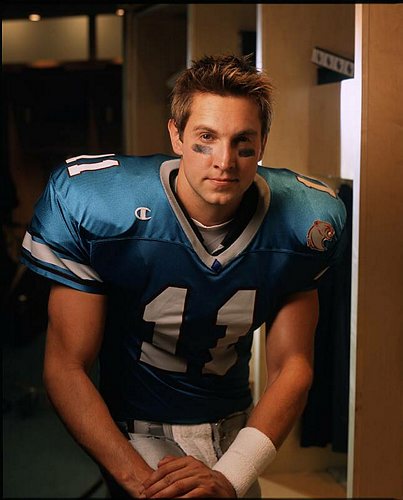
L’IDEA Magazine: You refer to the “Hollywood grapevine” being “just vicious” and that if “words get out that you have (or even had) a medical issue, then you’re marked as damaged goods, and you’re essentially done for…”? How have you overcome this problem and kept afloat and successful in Hollywood?
CHRIS WIEHL: I compare it to being a player on a sports team. If you’re injured and can’t play as well, you’re written off. And it’s the same in Hollywood. Competition is fierce, and you need every advantage possible. I just basically worked really, really hard to rehab myself so that now, I’m not physically handicapped and my health isn’t in question.
L’IDEA Magazine: Which one was the acting part that gave you the most satisfaction?
CHRIS WIEHL: Wow. It’s tough to just name one. I honestly go back to when I played John Merrick in The Elephant Man in college, because that part really opened up the whole world of acting for me. But also the first pilot I got called Bronx County was great, and my first series to go to air, a show called Bull, was great too. As an athlete, I loved being on the ESPN show Playmakers, when I got to play an NFL quarterback. So it’s hard to break it down to just one favorite.
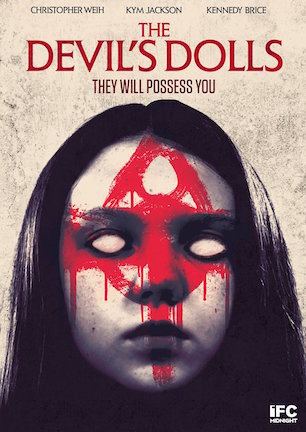
L’IDEA Magazine: What is your next project as movie producer and/or director?
CHRIS WIEHL: We have several scripts under our veil right now, but the one I’m most excited about is a film that’s still untitled that my writing partner Danny Kolker and I are working on. It’s about Ironman triathlons, and is sort of a coming-of-age story about two guys competing in Ironman.
L’IDEA Magazine: Are we going to see you in any TV series or movie in the next future?
CHRIS WIEHL: I’m actually reading for several TV parts and a couple of film parts. I don’t really want to say what they are—I’m superstitious about that!
L’IDEA Magazine: By meeting you and John together at the New York Book Show, I had the immediate sensation that yours was a deep friendship and not only work collaboration. How did you meet John Turner and decide he was the right person to help you with your book?
CHRIS WIEHL: I met John through Barbara Terry at Waldorf Publishing. Barbara gave me a list of names of people to interview to be my co-author; John and I had lunch, and we hit it off right away. We had many things in common: John was an actor, he’d had some brain trauma too, and we’re the same age. Plus, I really enjoy John’s “Southern sensibility,” him being from Mississippi; I recently shot a movie there, so we have that connection as well. I think John is very kind and is a great listener, so I thought he was perfect for the project. And we’d like to work together in the future adapting or writing an original screenplay.
JOHN TURNER
John Turner is a native Mississippian currently residing in Los Angeles. A 1997 graduate of the University of Southern Mississippi (BFA, Acting/Music), John relocated to New York in 1999 to begin his acting career; in 2002, he was the victim of a brutal mugging and assault, and suffered a traumatic brain injury in the attack. After that incident John no longer had the physical capabilities to perform, so he established a career as a writer. John recollects the terrible mugging (along with other life lessons) in his first book, a collection of humorous short stories called “Confessions of a Gimp” (2014). Since then, John has released two more non-fiction books and has had numerous stories published in national magazines. Learn more about John by visiting his official Facebook author page at facebook.com/johnturnerwriter. In 2014 John relocated to Los Angeles to be with the love of his life, his girlfriend (now his wife) Kari.
INTERVIEW WITH JOHN TURNER
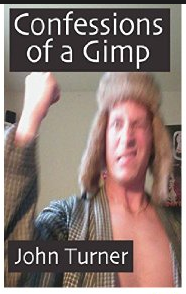
L’IDEA Magazine: Did you somewhat re-live your experience with trauma by helping Chris writing his story?
JOHN TURNER: Oh, sure. One thing I liked to do with Chris while we were doing interviews was to talk about my own experiences with my brain injury, and see if he related to them. That way, when I would transcribe the interview, it would be more organic and honest for me as a writer, and it would help me tell Chris’s story in ways I understood and could relate to.
L’IDEA Magazine: Did you ever think, when you started as an actor, that you could have become a writer? Was this something that would have happened anyway, with time?
JOHN TURNER: Well, I read a whole lot as a kid, and had entered some writing competitions in junior high and high school. So I kind of already knew I had the skill. After I suffered my brain injury and could no longer act, turning to writing was just a natural progression. And if I’m being honest, I think I’m a better writer than I was an actor. So where my professional life is concerned, my brain injury turned out to be a good thing.
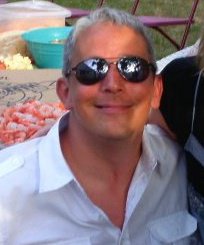
L’IDEA Magazine: What is your next book project?
JOHN TURNER: I’m planning to start a fiction novel early next year. Thus far my books have been non-fiction, but I think I have a pretty good sense of story, so I think I’m ready. I don’t want to give too much away, but it’ll be a bit autobiographical, about a guy who suffers brain trauma—but a side effect of his injury is that he gets a sort of “moral super-power.” Stay tuned for details!


